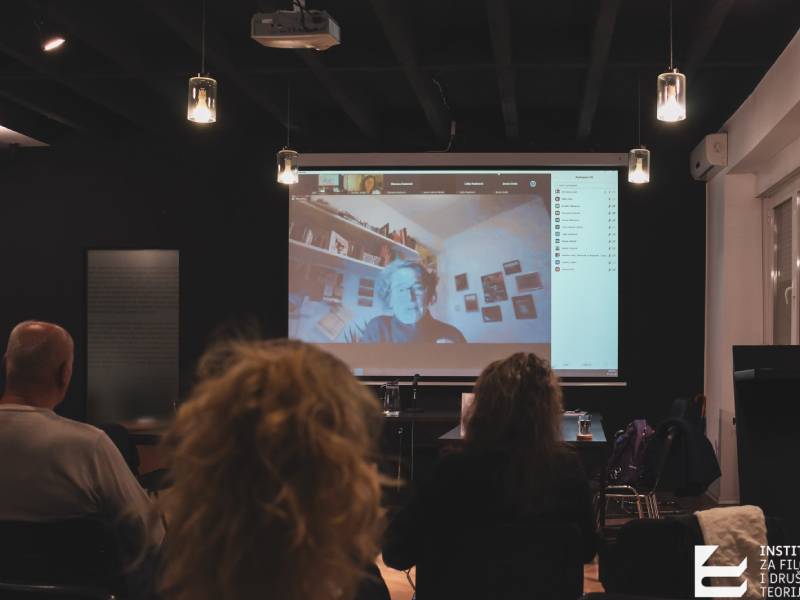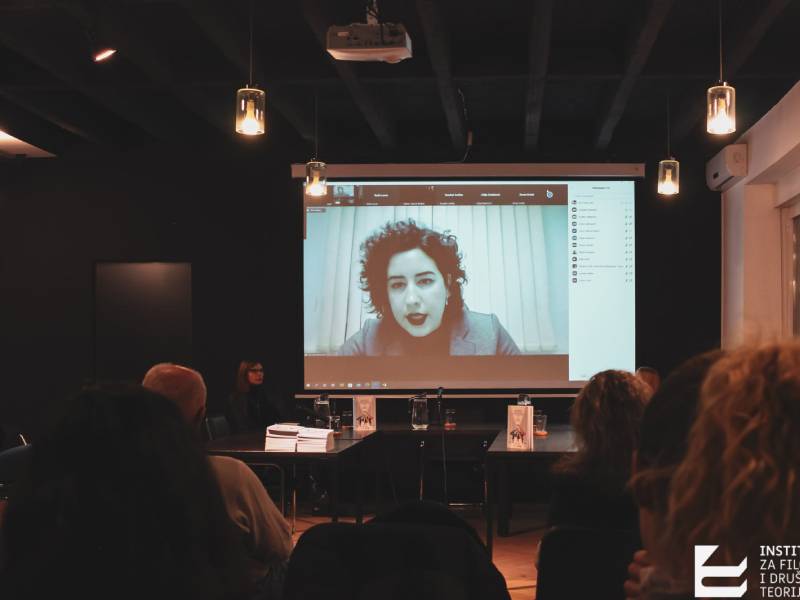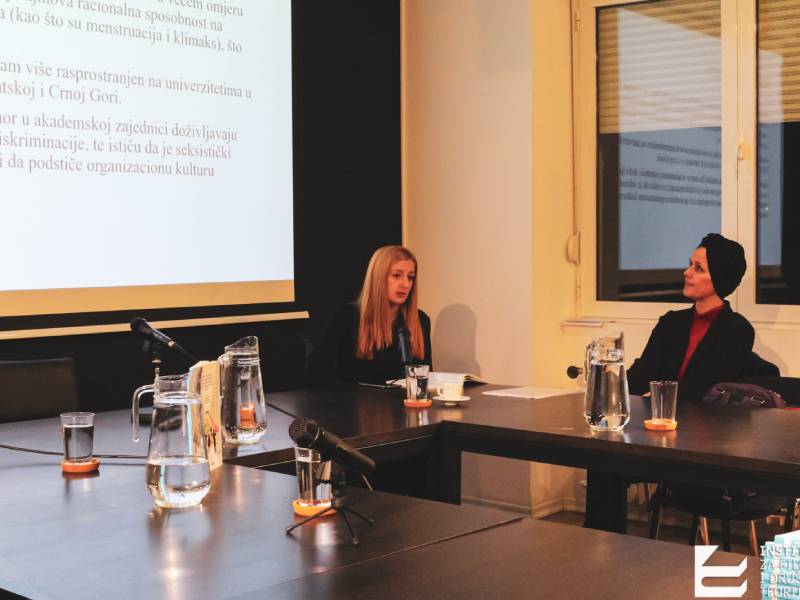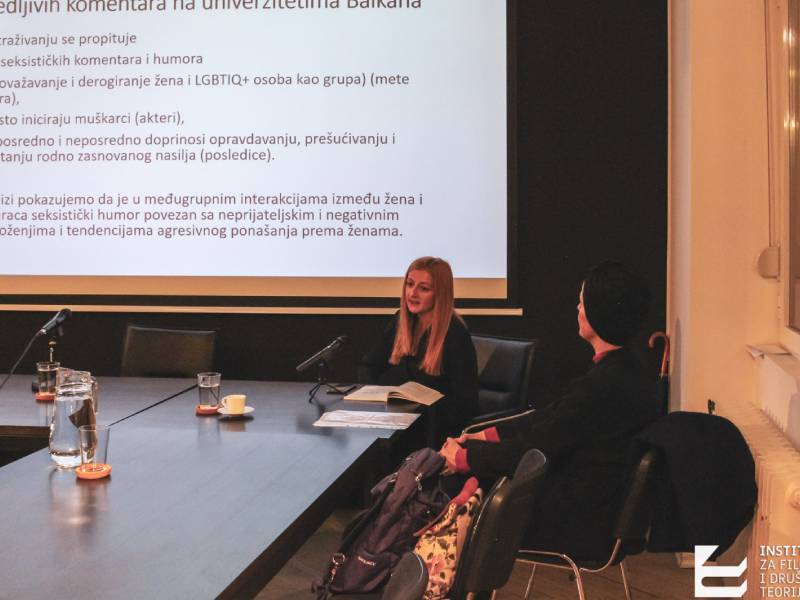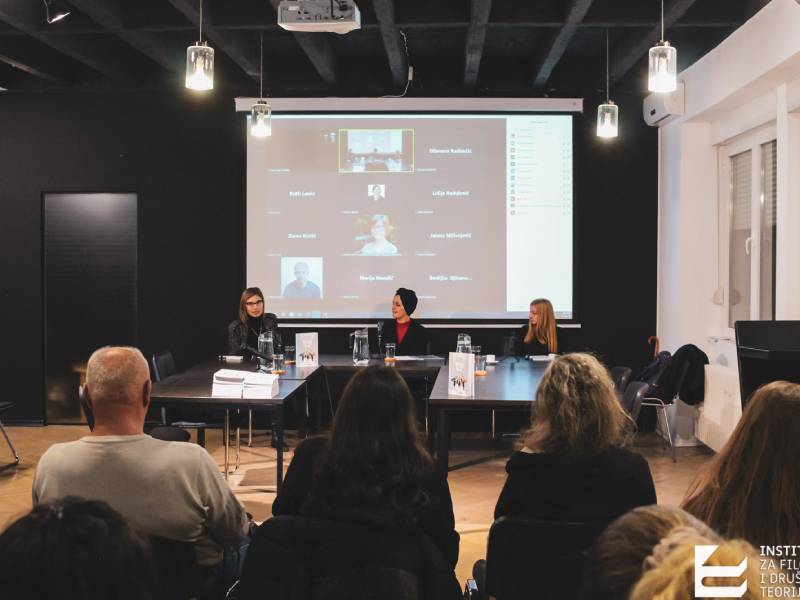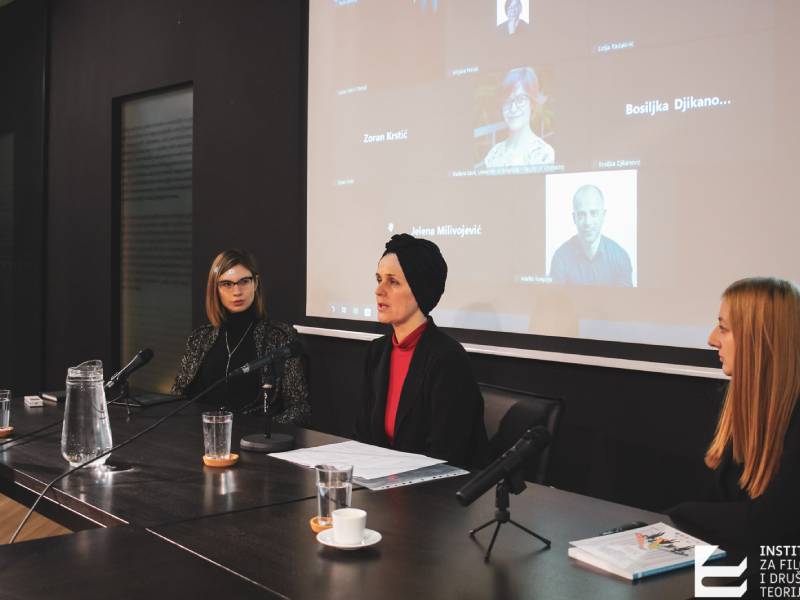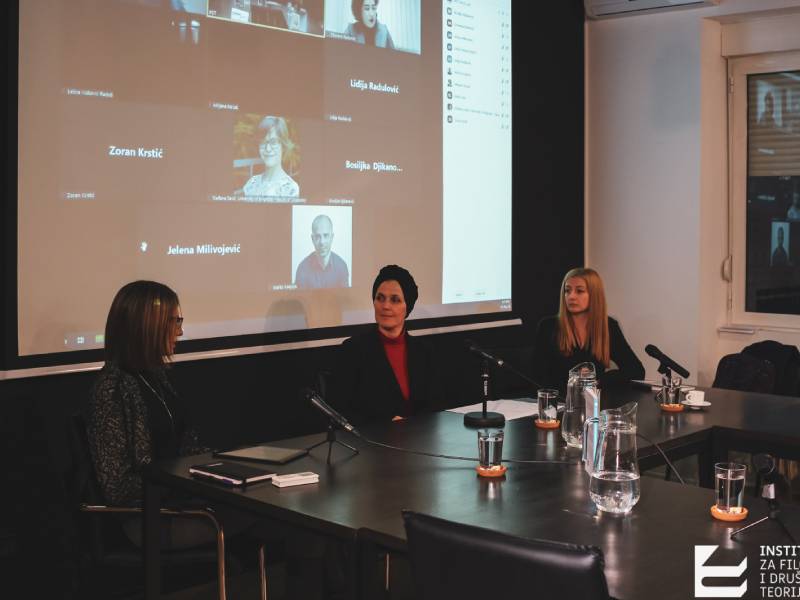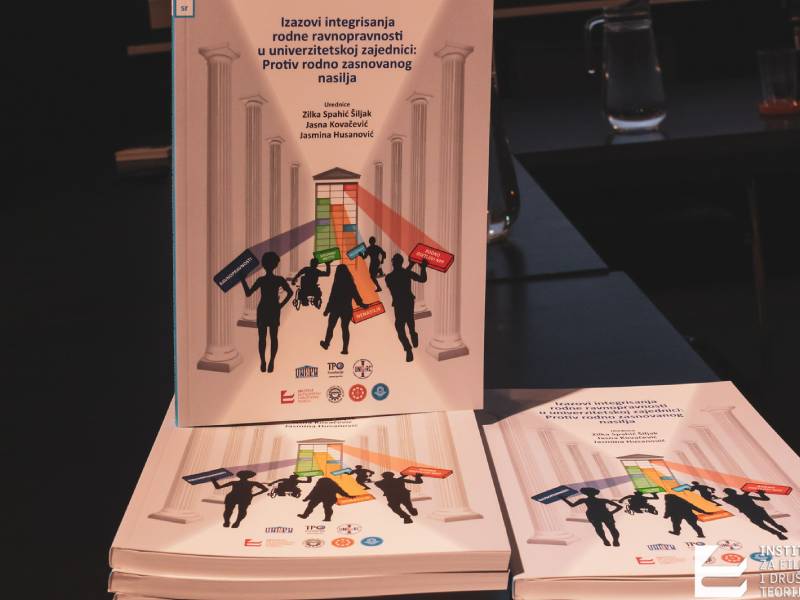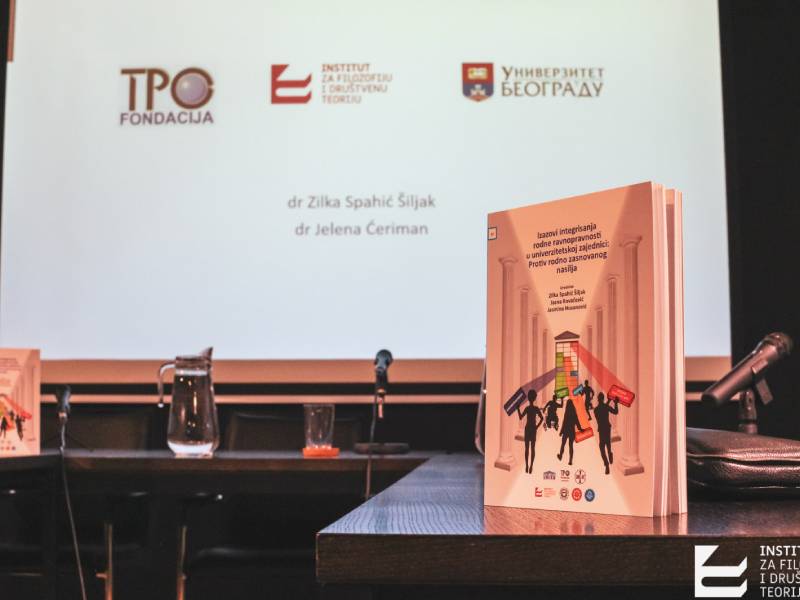On Thursday, December 1, 2022, the University of Belgrade (UNBG) hosted the promotion of the book “Challenges of integrating gender equality in the university community: Against gender-based violence”, edited by Zilka Spahić Šiljak, Jasna Kovačević and Jasmina Husanović. The book presents the results of a regional research, the first in the field of gender equality at universities, which included partner institutions from Bosnia and Herzegovina, Montenegro, Croatia and Serbia. The research is part of the “University and Gender Mainstreaming – UNIGEM” project, implemented by the TPO Foundation and supported by the Government of the United Kingdom.
UNIGEM aims to build an ethos of gender equality in higher education through policy development and sensitization of the teaching staff and student population regarding the topics of gender-based violence and sexual harassment. Specifically, this project gathers 19 partner universities and wants to initiate institutional changes in partner institutions, by helping building organizational cultures that will have a zero tolerance towards GBV.
At the beginning of the UNIGEM project, extensive quantitative and qualitative research was conducted through surveys and in-depth interviews. The research was designed by a team of researchers, consisting of: Zilka Spahić Šiljak, Jasna Kovačević, Jasmina Husanović, Ajla Demiragić, Milena Karapetrović, Mirjana Dokmanović, Merima Jašarević, Lana Bobić and Marija Tatar.
The promoters of the research conducted in Belgrade were: Professor Dr. Zilka Spahić-Šiljak, Program Director of the TPO Foundation from Sarajevo and Visiting Professor at the London University of Roehampton, and Dr. Jelena Ćeriman, Research Associate at the Institute for Philosophy and Social Theory (IFDT) of the University of Belgrade, and the moderator was Milica Resanović, Research Associate at IFDT.
Zilka Spahić Šiljak, as one of the editors and authors, referred to the methodological approach applied in this research, which is a step forward in relation to the classic feminist standpoint theory. It is about critical realism as a paradigmatic position that gives researchers enough “room to maneuver” to combine different methodological tools in research: qualitative and quantitative. The authors of the 12 chapters in this book, according to their background and focus of analysis, gave priority to the qualitative or quantitative part of the research, so they interpreted and critically reflected on the data through triangulation in order to answer the research questions and initial hypothesis. This is a pioneering regional research with a different critical philosophy of social sciences, opening up space for new veins of research that will continue to build on what was started by this regional research.
Afterwards, the Institute for Philosophy and Social Theory held a promotion of the book, which was translated within the UNIGEM project, titled “Gender-based violence in university communities. Policy, Prevention and Educational Interventions in Britain’, edited by Sundari Anitha, Professor at the School of Social and Political Sciences, University of Lincoln, and Ruth Lewis, Professor at the Department of Social Sciences, Northumbria University.
This book was promoted by professors Dr. Zilka Spahić-Šiljak and Dr. Jelena Ćeriman and the editors themselves, Sundari Anitha and Ruth Lewis, and Professor Dr. Dženana Radončić from the Faculty of Law of the University of Zenica, and the promotion was moderated by Milica Resanović.
Here is an excerpt from the book, highlighting the definition of gender-based violence: “We understand gender-based violence as behavior or attitudes based on unfair power relations that hurt, threaten or undermine people because of their (presumed) gender or sexuality. In this definition, it is recognized that gender-based violence is influenced by gender relations and that it affects them, and violence based on hierarchical constructions of gender and sexuality is focused on. Women and girls constitute the vast majority of victims of gender-based violence, and men the vast majority of perpetrators (Watts and Zimmerman, 2002; Hester, 2009). Gender-based violence includes a continuum of behaviors and attitudes such as domestic violence, sexual violence, sexist street harassment, trans/homophobic expressions and behaviors, and social media expressions that normalize sexism and sexual objectification. These expressions and behaviors are related through what Kelly (1988) described as a continuum of incidents and experiences. The incident continuum (Kelly, 1988, 1989) refers to the conceptual connections between the actions that underlie the offense – behaviors and expressions that are so common that they often blend into the minutiae of everyday life – and less common “violent” events (Stanko, 1985), broadly recognized as harmful, and based on entrenched hierarchies of power that, at the same time, reinforce them.”
We would like to thank our project partner, the Institute for Philosophy and Social Theory (IFDT) of the University of Belgrade, for the cooperation, and especially for the mentioned promotions of the two TPO Foundation editions.
